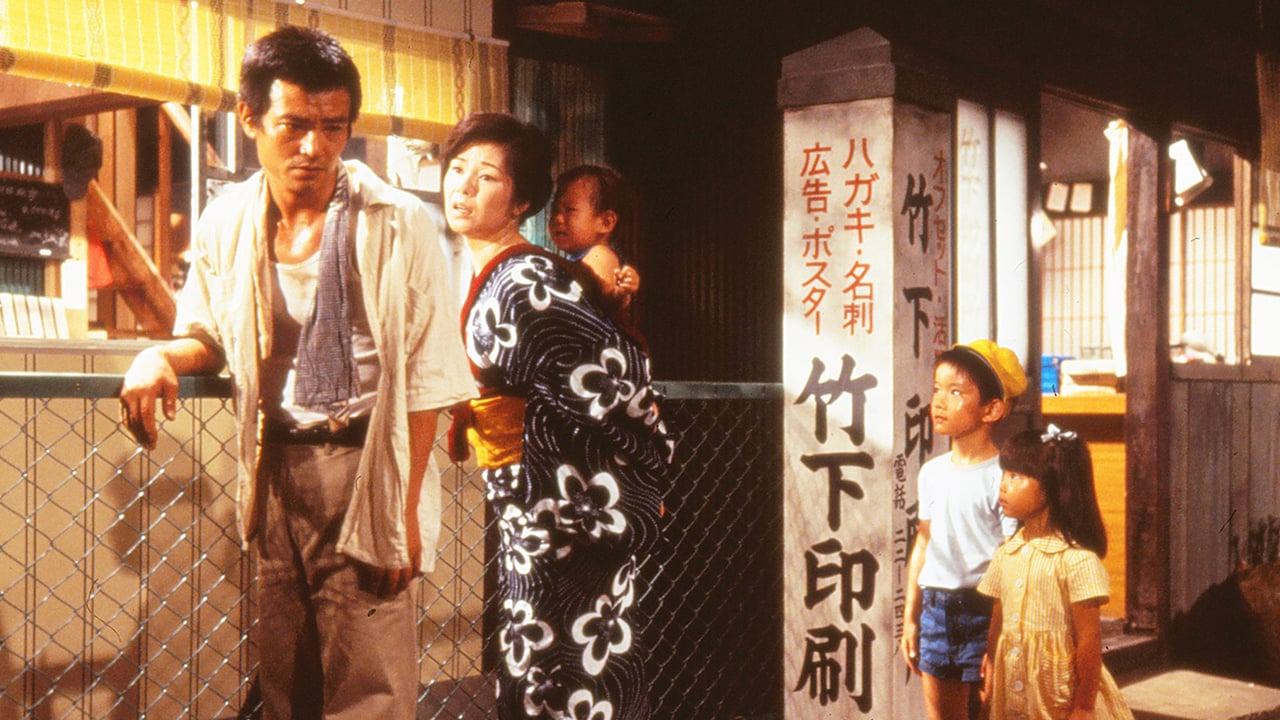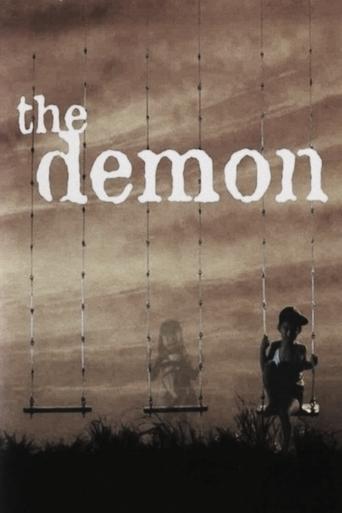

THE DEMON / THE BRUTE (LIT.) (KICHIKU). Viewed on DVD. Restoration/preservation = ten (10) stars; locations = eight (8) stars; score = eight (8) stars; cinematography = seven (7) stars; subtitles/translations = three (3) stars. Veteran Shochiku Director Yoshitarou Nomura presents a multidimensional, deeply disturbing drama dealing with unwanted children who may or may not be the result of a spineless, philandering husband. Nomura masterfully mixes a wide-range of ingredients into his pot including: a likable slacker protagonist who is skimming profits from a small-business print shop to support his mistress and her three illegitimate children; his hard-working wife who does not want (or even seem to like) children; child abandonment on the print-shop's door step by the mistress and later duplicated by the protagonist; attempted and successful child murders by the print-shop couple; skillful detective work by the police; and the eventual imprisonment of the husband (but not his wife). The film is for sure about violence directed against children, but is also about other matters such as how dire circumstances can force unwilling (and sympathetically portrayed) folks to engage in unforgivable cruelty. (Apparently this photo-play is based on a real police case.) The Director's scenes of good-cop-bad-cop interrogation of a child who survives an attempted murder are classic. Acting by adults is outstanding across the board. Not so much for the children who come across as mostly artificial. Their physical bits of business are believable. But their stony-faced, monotone deliveries using words/phrases unlikely to be spoken even by precocious kids of that age seem phony and can lessen the impact of adult performers sharing a scene. (Directing child actors is rarely a piece of cake!) Choice of exterior small-town/rural locations is very effective. Cinematography (1.85:1, color) and inter-scene lighting can be uneven especially for some beach/cliff scenes. Score is inventive, lush, and haunting; but a bit too heavy duty for some scenes. Subtitles/translations need work. Not all dialog delivered by children is subtitled. Signs (of which there are many) almost never are translated. Disturbing yet compelling. WILLIAM FLANIGAN, PhD.
... View More"The Demon" is a stark, deeply-felt film relatively unknown in the West and one that often flows and feels like Ingmar Bergman directing a quintessentially Japanese story. The customary strains and strictures of modern Japanese life backstop the viewer, and if one single character functions as the title, which character that is requires active collaboration from the viewer. I was concerned the story arc might wax soap-operatic, but it doesn't. "The Demon" is sensitively- directed, and its characters defy pigeonholing. The iconic imagery of the baffled, buffeted, confused children stuns. "The Demon" belongs in the pantheon of really great movies about family pathology like Lanthimos's "Dogtooth" and Bergman's "Cries and Whispers." The Criterion Collection release is a crackerjack edition.
... View MoreA man (Ken Ogata) is saddled with his three illegitimate children when his mistress skips town. This more than annoys his actual wife (Shima Iwashita), who knew nothing about it and is herself childless. Ogata attempts to care for the children, but he just isn't up to it. For a while, I was expecting an Ozu-esquire domestic drama about a man and his wife who eventually come to love these children and learn responsibility. Oh, how wrong I was. I should have known that the title had something to do with the content. After thirty minutes or so the film's tone shifts as the husband and wife make plans to get rid of their unwanted bundles of joy. This is a very dark film, done very subtly. It strikes me as something Vittorio de Sica could have made perfectly. The last sequence reminds me very much of The Children Are Watching Us. As it is, The Demon is not a perfect picture. It goes on a bit too long. You can't do much besides hate the married couple, and it's just so difficult to build honest suspense around endangered children. Ogata, best known as being the star of Shohei Imamura's Vengeance Is Mine, which was made the next year, is exceptional. He goes through a range of emotions in the picture, all perfectly and subtly expressed. He is probably the titular character, but that title is ironic. He is demonic in his intentions, but he is clearly a human being. A couple of third act speeches, especially one he gives about his own past, harms the film a lot, unfortunately. Shima Iwashita is also great, although she doesn't get any chance to seem human (she's much closer to being a demon). In the past she starred in two movies by Ozu (Late Autumn and An Autumn Afternoon), as well as Shinoda's Double Suicide, Kobayashi's Harakiri, and Okamoto's Red Lion. I also love the musical score, though it is often used cheaply to toy with the audience's emotions. The film wins extra points by mentioning Gatchaman, one of my favorite TV series ever (that I just found on DVD!).
... View MoreWicked stepmother stories, whether fairy tales or memoirs, usually come at us from the point of view of the child. Here the point of view floats. It almost never rests with a child, as three adults shunt not just children, hot potato-like, but also responsibility, blame, and guilt. Only Ken Ogata's Sochiki, possibly the "demon" of the title, the children's father, hesitates at the film's brutalities. Only he has the customary exculpatory back story (his own father and uncle ).Is the father the title's "demon"? Before I read the DVD liner notes which I think imply the father, I assumed it was Sochiki's wounded but manipulating wife, Oume. She's unrelenting. Every time the camera lingers, as if anticipating some hint of even involuntary or innate womanly compassion, she disappoints. The kids fear her, but continually forgive their father. Few heartfelt villains are as lankily goofy as Ogata plays Sochiki. In more recent film language, meaning the J-horror trend, though I'm sure it wasn't Nomura's intent at all, the miraculously death-defying five-year-old Riichi, the oldest child, would have to be the demon. At times, Riichi, preternaturally wise at five, seems demon-like, obstacle-like, as chance, luck, and his own cunning or, more credibly, intuition, thwart every attempt to extinguish him. Camera angles looking at him through Sochiki's or Oume's eyes anachronistically mimic shots of demon children in the Ringu films, Ju-on, Tomie, etc., etc. I don't know what that means, or why it came to me here, but there it is. Maybe the "demon" is something human or societal floating between all Nomura's players.Obvious touch points, each like this film based on a true incident, are Oshima's "Boy" (Shonen) and, though I've yet to see it, Kore-eda's "Nobody Knows" (Dare mo shiranai).
... View More